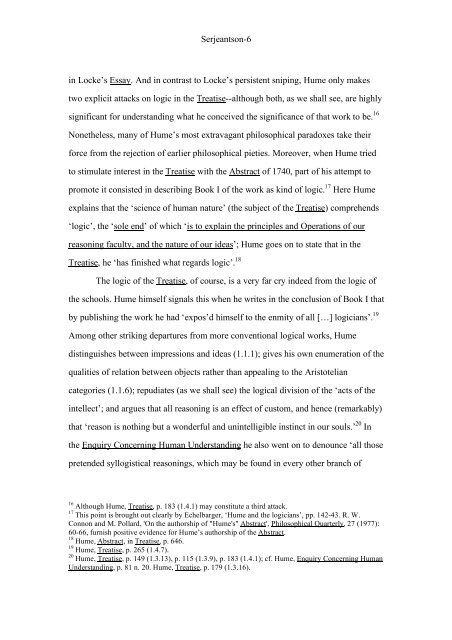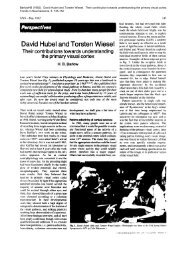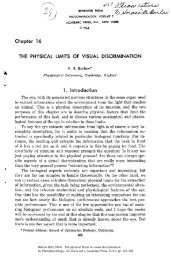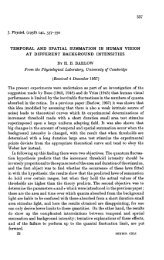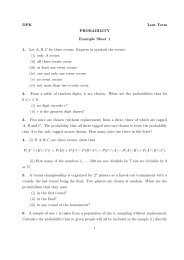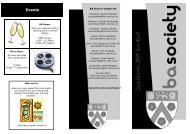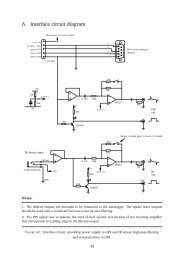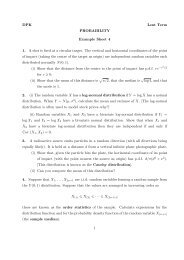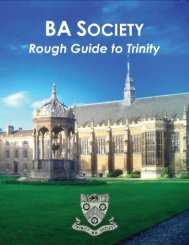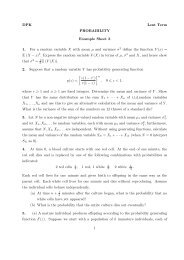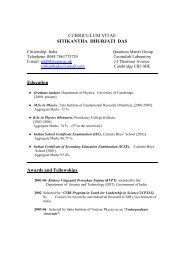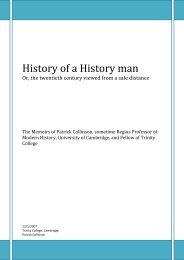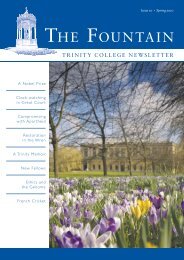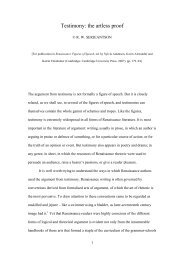Hume's General Rules - Serjeantson
Hume's General Rules - Serjeantson
Hume's General Rules - Serjeantson
You also want an ePaper? Increase the reach of your titles
YUMPU automatically turns print PDFs into web optimized ePapers that Google loves.
<strong>Serjeantson</strong>-6<br />
in Locke’s Essay. And in contrast to Locke’s persistent sniping, Hume only makes<br />
two explicit attacks on logic in the Treatise--although both, as we shall see, are highly<br />
significant for understanding what he conceived the significance of that work to be. 16<br />
Nonetheless, many of Hume’s most extravagant philosophical paradoxes take their<br />
force from the rejection of earlier philosophical pieties. Moreover, when Hume tried<br />
to stimulate interest in the Treatise with the Abstract of 1740, part of his attempt to<br />
promote it consisted in describing Book I of the work as kind of logic. 17 Here Hume<br />
explains that the ‘science of human nature’ (the subject of the Treatise) comprehends<br />
‘logic’, the ‘sole end’ of which ‘is to explain the principles and Operations of our<br />
reasoning faculty, and the nature of our ideas’; Hume goes on to state that in the<br />
Treatise, he ‘has finished what regards logic’. 18<br />
The logic of the Treatise, of course, is a very far cry indeed from the logic of<br />
the schools. Hume himself signals this when he writes in the conclusion of Book I that<br />
by publishing the work he had ‘expos’d himself to the enmity of all […] logicians’. 19<br />
Among other striking departures from more conventional logical works, Hume<br />
distinguishes between impressions and ideas (1.1.1); gives his own enumeration of the<br />
qualities of relation between objects rather than appealing to the Aristotelian<br />
categories (1.1.6); repudiates (as we shall see) the logical division of the ‘acts of the<br />
intellect’; and argues that all reasoning is an effect of custom, and hence (remarkably)<br />
that ‘reason is nothing but a wonderful and unintelligible instinct in our souls.’ 20 In<br />
the Enquiry Concerning Human Understanding he also went on to denounce ‘all those<br />
pretended syllogistical reasonings, which may be found in every other branch of<br />
16 Although Hume, Treatise, p. 183 (1.4.1) may constitute a third attack.<br />
17 This point is brought out clearly by Echelbarger, ‘Hume and the logicians’, pp. 142-43. R. W.<br />
Connon and M. Pollard, 'On the authorship of "<strong>Hume's</strong>" Abstract', Philosophical Quarterly, 27 (1977):<br />
60-66, furnish positive evidence for Hume’s authorship of the Abstract.<br />
18 Hume, Abstract, in Treatise, p. 646.<br />
19 Hume, Treatise, p. 265 (1.4.7).<br />
20 Hume, Treatise, p. 149 (1.3.13), p. 115 (1.3.9), p. 183 (1.4.1); cf. Hume, Enquiry Concerning Human<br />
Understanding, p. 81 n. 20. Hume, Treatise, p. 179 (1.3.16).


